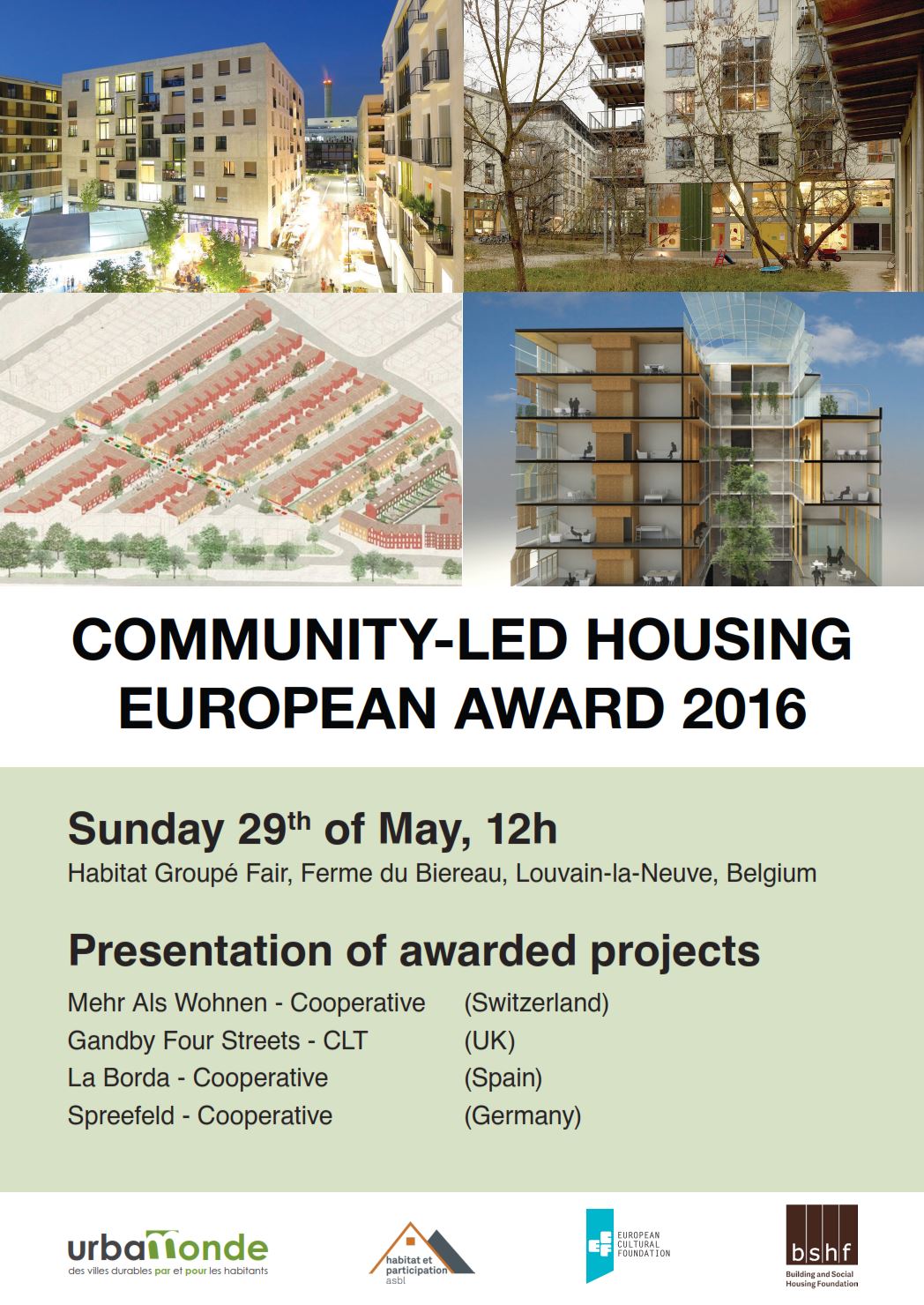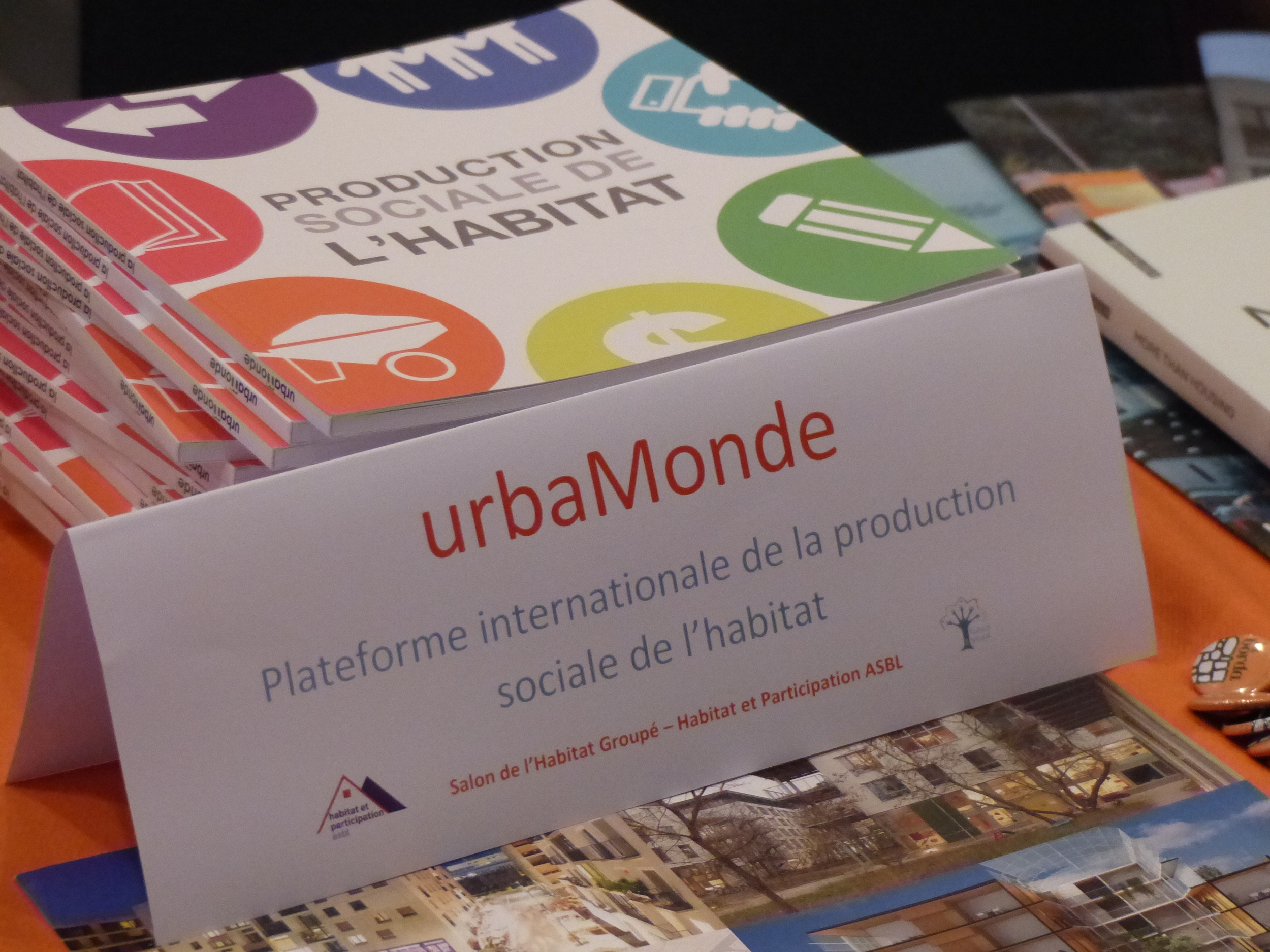Throughout the summer we accompany the launch of our new Idea Camp call with highlights on the works of former Idea Camp participants showing the depth and breadth of our grantees’ networks (you can apply for the 2017 Idea Camp until 20 September 2016). We now talk to Bea Varnai, from UrbaMonde in France.
Bea Varnai (centre) at the Idea Camp 2015. Photo by Julio Albarrán.
In your application for the 2015 Idea Camp you wrote “we believe that another city is not only possible but also in the making”, can you give some examples of where you have seen this happening since 2015?
Alongside public and private actors, the third sector, or as we like to call them - inhabitant groups, are developing housing solutions. It is well known that many cities of the developing world are being built to 60, 70 and sometimes 80% by their inhabitants. What is less well known is that oftentimes their housing solutions are innovative and sustainable, and rely on a strong social organisation: saving groups are at the core of slum-upgrading projects led by Slum Dwellers International in Africa and Asia; in Uruguay, self-help cooperative housing provides affordable housing alternatives to thousands of people.
Likewise, in Europe, there is an increasing movement of community-led or collaborative housing – flourishing partly as an answer to crisis, austerity and the retreat of the welfare state. In Liverpool, the Community Land Trust model, like Granby4Streets CLT proved efficient for refurbishing and revitalising a neglected neighbourhood from the bottom up; in Zurich and Berlin housing cooperatives such as Mehr als Wohnen and Spreefeld have successfully built not only affordable and energy-efficient homes, but also public and commercial spaces; in Barcelona, a first cooperative housing experience, La Borda, is being implemented with the aim to allow for changes in legislation and to design supportive public policies.
Video: Bea Varnai presents her idea during the Idea Camp 2015
You presented your idea of providing a solution for a crucial lacking tool in community housing: a platform to meet for those involved in community led housing. How did the R&D grant help you in actually ‘building’ (towards) that platform?
This year, we have launched the ‘Digital Social Platform’; an open-source, collaborative and Wikipedia-like online tool that maps, documents and connects local projects with their peers and to ‘support actors’, such as local governments, professionals, NGOs, universities, etc. The Platform is evolving constantly, we will soon add new features such as the possibility to publish events and to connect directly to the projects. At the end of May, we organised the first European Hub meeting on Community-led Housing in Belgium in the framework of the 7th Habitat Groupé Fair. The Hub was an occasion for project representatives from across Europe to exchange with their Belgian peers, and for regional and national networks to coordinate their work at the European level. We plan to implement similar dynamics in the years to come, in Europe, North America, Asia and Africa. In Latin America, we have organised a similar Hub exchange in October 2015 in Lima, Peru.
What were you able to do with the grant that otherwise would not have been possible?
Thanks to the grant, urbaMonde was able to dedicate time and human resources to the task of developing the online platform and to coordinating different actors at the European level. The grant was therefore crucial for kick starting the platform, and for being able to show first results to potential funders.
Have contacts you made at the Idea Camp helped you in any other sense than merely financially?
Definitely. Since the Idea Camp, we collaborated directly with some of the Idea Makers and other participants – on cooperative housing in Serbia with Kogradigrad and on self-help housing for the homeless in England (Protohome). The Idea Camp also allowed us to access diverse networks of progressive and forward thinking urban and cultural projects, such as re:kreators and Eutropian. We also collaborated with ECF on Build the City – a practice-based Manifesto, which illustrates some of our partners’ projects, and particularly share ECF’s approach on ‘civic-public partnerships’ and the ‘co-production’ of cities!
In Brussels during the first European Hub meeting on Community-led Housing
Earlier this spring you granted the ‘European Community-led Housing Award 2016’, all projects were from former Western Europe (UK, Switzerland, Spain, Germany). Could you explain what and why there is such a difference between these countries and former Eastern and Central European countries?
Local contexts, legal frameworks, and economic opportunities vary across the four countries you mention; therefore, community-led housing initiatives face different constraints and opportunities: cooperative housing in Zurich benefit from a well-established and supportive administrative and legal framework, while in Spain we are talking about first pilot projects trying to lead the way for a broader movement. However, there is in fact an East-West gap within Europe, mainly due to the history of the region: ‘cooperative’ or ‘commmunity-based’ organisations are viewed with skepticism because of the communist past in Eastern, Southeastern and Central Europe, while rental housing or social housing policies barely exist in those countries. I am originally from Hungary, and believe that structural elements, relicts of a particular past, explain the difference between Western and Eastern Europe, rather than cultural aspects (“Hungarians don’t know how to share and collaborate”) that are sometimes put forward by skeptics.
How could the latter two regions benefit from the insights you gained from these projects?
Experience sharing is key for driving innovation and for inspiring new projects and movements in Eastern, Central and Southeastern Europe. It is not about transferring the Swiss or German Danish models, but about discussing which elements, organisational structures and ideas can be adapted to other contexts. Community-led initiatives are sprawling in Slovakia, Hungary, Serbia, and Czech Republic and they are very keen to learn about projects in Western Europe (and beyond!). Our Platform seeks to support this type of experience sharing and to enhance solidarity links at the project level. Equally important, the Platform seeks to provide an advocacy tool for pioneering initiatives by promoting supportive public policies so that project leaders can negotiate with local politicians, funders and opinion-makers: see, this works elsewhere? Why can’t we do it here?
How could a next Idea Camp benefit from your learning curve?
The Platform is about building a community and solidarity, and enhancing experience exchange both through digital tools and through ‘physical’, ‘real-world’ meetings. I believe that these elements, regardless of the topic or problem they are applied to, are crucial for many of the Ideas and Idea Makers participating in the Idea Camp. We would be happy to share our experiences on our work, but also to take the Platform forward.
Thank you Bea!
You can learn more about Bea's idea and activities via the links below:
UrbaMonde website and the Digital Social Platform.

































































